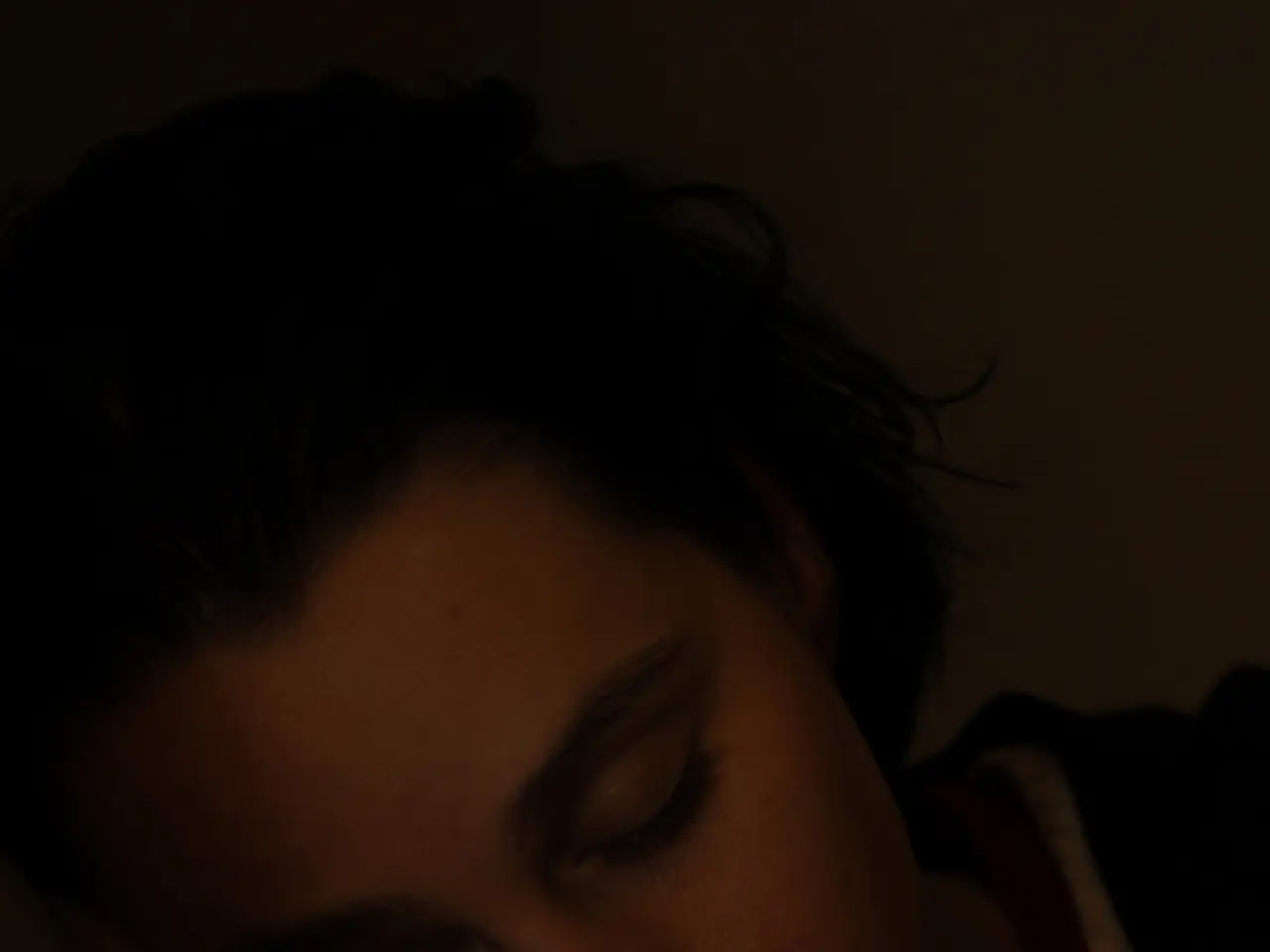Loud Snoring Indicates Potential Lack of Brain Oxygen
Obstructive Sleep Apnea (OSA) is a common sleep disorder that affects millions of people worldwide. This condition, characterised by repeated pauses in breathing during sleep, can have serious consequences if left untreated.
Each pause in breathing, known as an apnea, can last 10 seconds or more, cutting off oxygen supply to the brain and body. This chronic oxygen deprivation can strain the cardiovascular system, causing the heart to work harder to pump oxygen-starved blood. Untreated OSA can increase risks for hypertension, stroke, and cognitive decline.
Snoring can be a symptom of OSA. It signals a partial or complete blockage of the airway, and in more serious cases, it's linked to OSA where the throat muscles relax too much, collapsing the airway. Ignoring snoring can have long-term consequences, such as morning headaches, daytime drowsiness, difficulty focusing at work, and strained relationships due to irritability.
Age plays a role in snoring and OSA as muscle tone weakens with age, increasing the chance of airway collapse. Excess weight can also narrow airways, increasing the likelihood of snoring or OSA. Men are at higher risk of snoring or OSA than women, but menopause can close this gap due to hormonal changes affecting throat muscles.
Nasal issues like chronic congestion or a deviated septum can contribute to snoring or OSA. Alcohol consumption relaxes throat muscles, making snoring or OSA more likely.
For those diagnosed with OSA, treatment options are available. A sleep study, often done at home with portable devices, can measure breathing, oxygen levels, and sleep patterns to confirm a diagnosis of OSA. In less severe cases, weight loss, even just 5-10% of body weight, can significantly ease snoring by reducing throat tissue.
In more serious cases, CPAP (Continuous Positive Airway Pressure) machines can keep airways open for those with OSA by delivering a steady stream of air through a mask. These machines help maintain a consistent airflow, preventing the throat from collapsing during sleep.
It's important to note that people affected by OSA who are likely to remain untreated are those who do not recognise their symptoms or do not seek help. These individuals may show signs such as excessive daytime sleepiness, teeth grinding, jaw muscle enlargement, and dental wear, which can sometimes be spotted by dentists during routine check-ups, but often go unnoticed by the patients themselves.
Poor sleep quality from snoring can amplify anxiety and depression. Recognising and addressing snoring and OSA early can improve overall health and quality of life. If you or someone you know snores heavily or exhibits symptoms of OSA, it's essential to seek medical advice to ensure proper diagnosis and treatment.
Read also:
- Nightly sweat episodes linked to GERD: Crucial insights explained
- Antitussives: List of Examples, Functions, Adverse Reactions, and Additional Details
- Asthma Diagnosis: Exploring FeNO Tests and Related Treatments
- Unfortunate Financial Disarray for a Family from California After an Expensive Emergency Room Visit with Their Burned Infant








